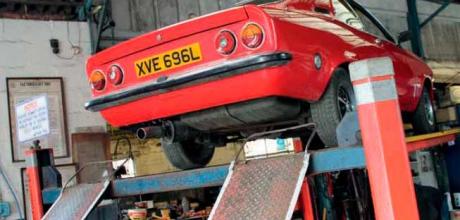MoT safety questioned
Fears over unsafe classics on our roads have gathered pace following new data from the DVSA, which has revealed that almost one in five of the cars voluntarily submitted for an MoT test since the beginning of 2019 have initially failed.
Back in May 2018 MoT exemption was controversially brought in line with historic vehicle tax (VED), meaning vehicles built more than 40 years ago no longer need to be tested providing no ‘substantial changes’ have been made in the last 30 years. However, owners are still responsible for keeping their vehicles in roadworthy condition, and failure to do so can result in a fi ne of up to £2500 and three points. Data obtained via a Freedom of Information request by BookMyGarage.com showed 121,204 classic cars aged over 40 years old were still MoT tested voluntarily between January 2019 and June 2021, despite a lack of legal obligation to do so.
Of the cars tested, the average failure rate was 18.4 per cent. Dodge had the highest failure rate with over half (55.2 per cent) failing foul, but only 143 examples were submitted.
There are, however, some big European brands in the test, with 31.9 per cent of the 19,154 Volkswagens tested failing, and 24.6 per cent of the 8817 Morris vehicles also falling at the initial hurdle.
Out of all the brands in the top 10 for failure rates, the most tested was MG with 22,974 vehicles. The failure rate for these was 20.8 per cent, with historic rival Triumph not far behind at 18.8 per cent over 15,494 examples tested.
Other brands in the top 10 were Reliant, Porsche and Fiat. However, numerous renowned manufacturers also had clean sheet records with zero recorded failures, including Bentley, Wolseley, Saab, Peugeot, Opel, Toyota and TVR. DVSA data showed newer classic cars were more likely to fail than their older counterparts, with 1970s cars are three times as likely to fail than those from the 1950s. It also showed just 41,000 historic vehicles were tested, down 32 per cent on 2019, likely due to the impacts of the pandemic.
When the MoT exemption was brought in, the Department for Transport justified the decision by saying that historic vehicles are generally well maintained and used mostly for short journeys, and that the modern MoT is no longer relevant to cars over 40 years old. But it all serves to highlight the importance of carrying out regular checks and keeping on top of maintenance.


